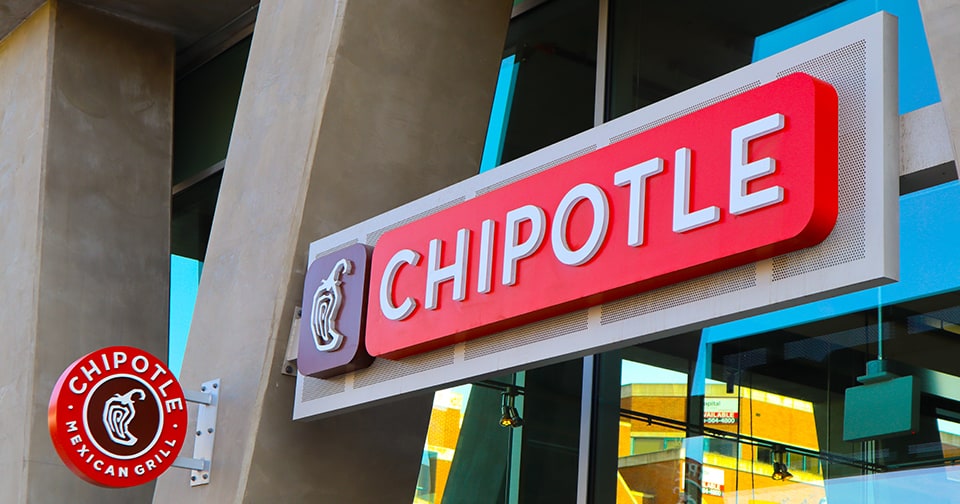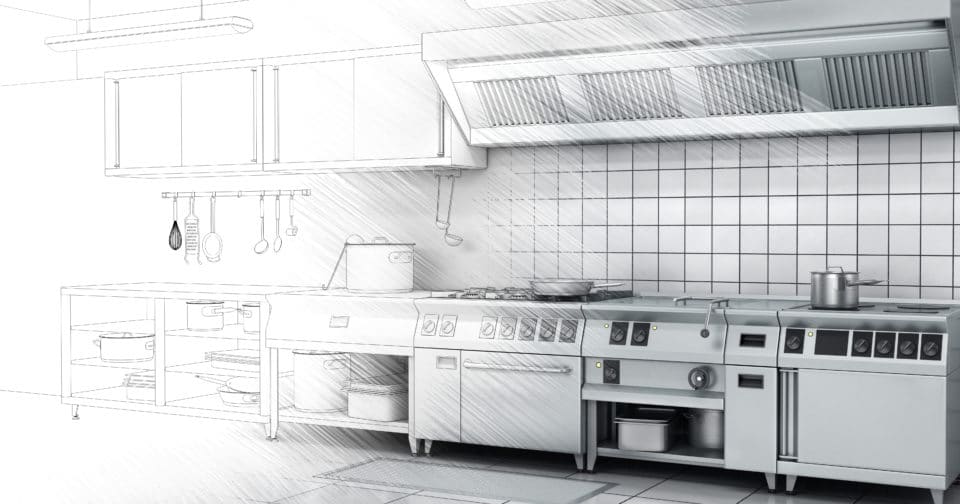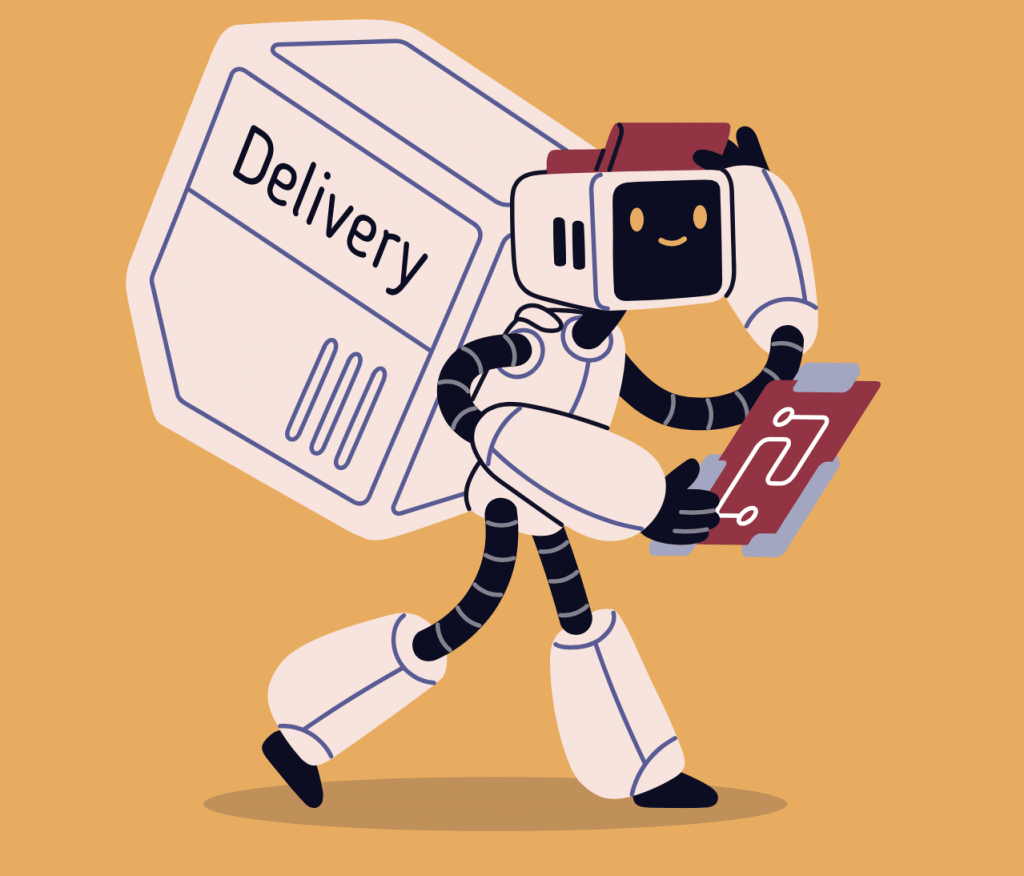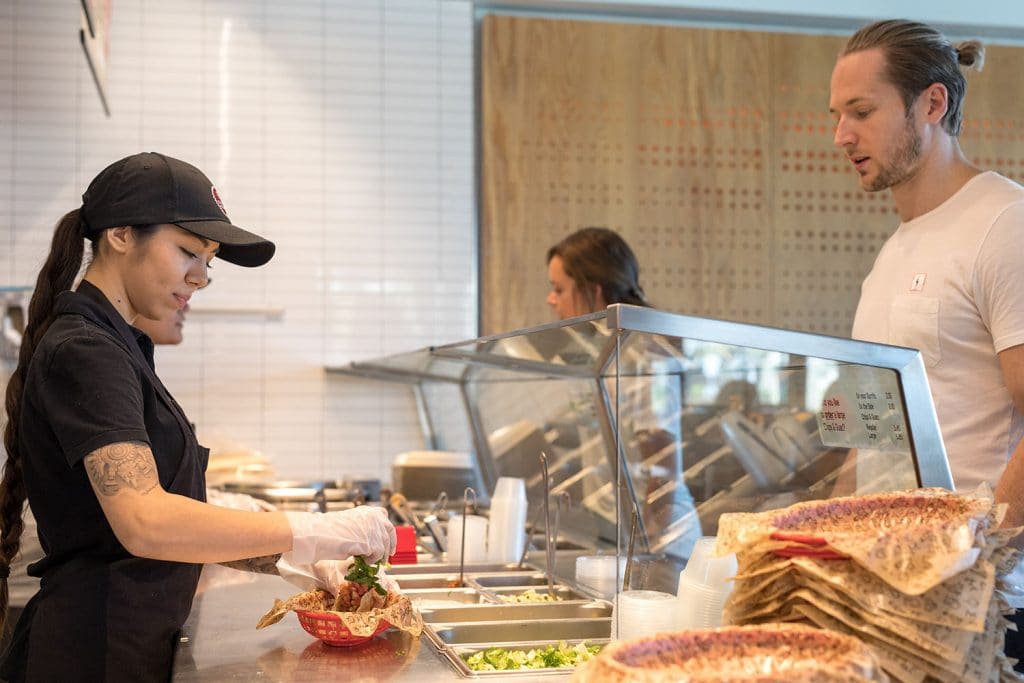
Chipotle, the US casual dining giant with $1.4 billion in revenue, began trialing artificial intelligence (AI)-powered voice assistants in 2018. They have since expanded this technology to 1,800 locations and hope to implement the system into all of their US stores by the end of the year.
As the Nation’s Restaurant News points out, while AI-powered voice assistants are utilized by various fast food chains such as Domino’s Pizza, Chipotle’s specialization in customized meals means their own technology needs to be a notch above the rest in its sophistication: it needs to hold a conversation.
The Chipotle voice robot actively listens to customers to note when they ask for an extra topping or to leave out an unwanted ingredient, and even pipes up with order suggestions of its own.
It’s a move that Nicole West, Chipotle’s vice president of digital strategy and product, says will enable greater convenience for consumers. It creates a seamless order service that allows customers to order and pay, beating the queue to their burrito.
“This technology is new and evolving,” says Melanie Corey-Ferrini Technology FCSI of 3.14 Design and Consulting in Seattle, US. “Technology needs to always be balanced with customer interface and seen as support to the human interaction. With that said, there are restaurants who are trying out various degrees of AI, voice, and robotics in the restaurant industry. This may possibly lead to lower labor with some menu types and locations, but that is still unknown.”
According to Corey-Ferrini, fully integrated processes “are still lacking in the industry. With too many disparate technologies in one location – all not talking to each other – could lead to more operational headaches versus streamlining the process.”
Increasing sales
Associate FCSI member Jay Bandy, president of Goliath Consulting Group in Georgia, US, says, “For Chipotle the win is having one more point of contact that the consumer can use. People want choices and some people like to place orders over a phone. They are taking advantage of a time when many operators refuse or discourage phone orders. The bottom line is that they will capture more sales by becoming a go-to for consumers who want to place their orders by phone.”
The biggest impact, says Corey-Ferrini, will be “more attention being paid to customer service and the experience overall and less attention to the act of ‘taking orders’. More creativity in food delivery, customer interaction and journey, can likely be a beneficial outcome of technology supporting operations and redundant tasks.”
Consultant Juan Martinez FCSI, of Profitality in Florida, US, says the AI technology could be crucial for Chipotle to handle their recent growth. Their Q2 report announced a 13.2% increase in revenue year over year. “AI order taking devices will provide a good avenue to handle this business growth autonomously, minimizing the labour needed to take the order,” he says.
Martinez points out that around 25% of the total labor time to complete an order is in the order taking and payment. “Using AI could eliminate this time,” he says. “If the part of the system that makes suggestions to customers works, it could also drive sales, and further reduce the labour cost as a percentage of sales. Restaurants are feeling a lot of pressure on the labor front, so the application of AI will continue to grow.”
Taking over the drive thru
Bandy sees Chipotle’s use of AI ordering systems as part of a growing trend: “The ability to use it as operational tool in the kitchen to track waste, to add to or place orders and complete line checks is unlimited. We’ll see the uses of AI and voice technology exponentially increase and be scaled so smaller operators have access to it. In service, I can see the technology take over drive-thru order taking and help consumers with somewhat clunky ordering kiosks that are out there now.”
There have been, says Corey-Ferrini, some smaller franchise and multi-unit concepts that are following suit to Chipotle, but on a smaller level. “I believe there will be a start-up period for the cost to implement, train others, and integrate. Once that system is in place and tested, it could have an advantage in the industry. My hope is that makes room for less food waste and greater integration of local and sustainable ingredients,” she says.
More generally, Martinez reflects on the use of AI for equipment in the restaurant industry: “On the equipment side, it should help to monitor the pieces of equipment, extending the life of the unit, as well as providing safety against product spoilage that would increase food cost, or tracking critical food safety areas, providing protection for the brand.”
Brian Niccol, CEO of Chipotle, places the casual dining giant’s Q2 success down to “better restaurant operations, more effective marketing, and leveraging [Chipotle’s] digital make line to grow sales and expand access.” The operator’s new AI voice system may well contribute to future growth.
Heather Cant




